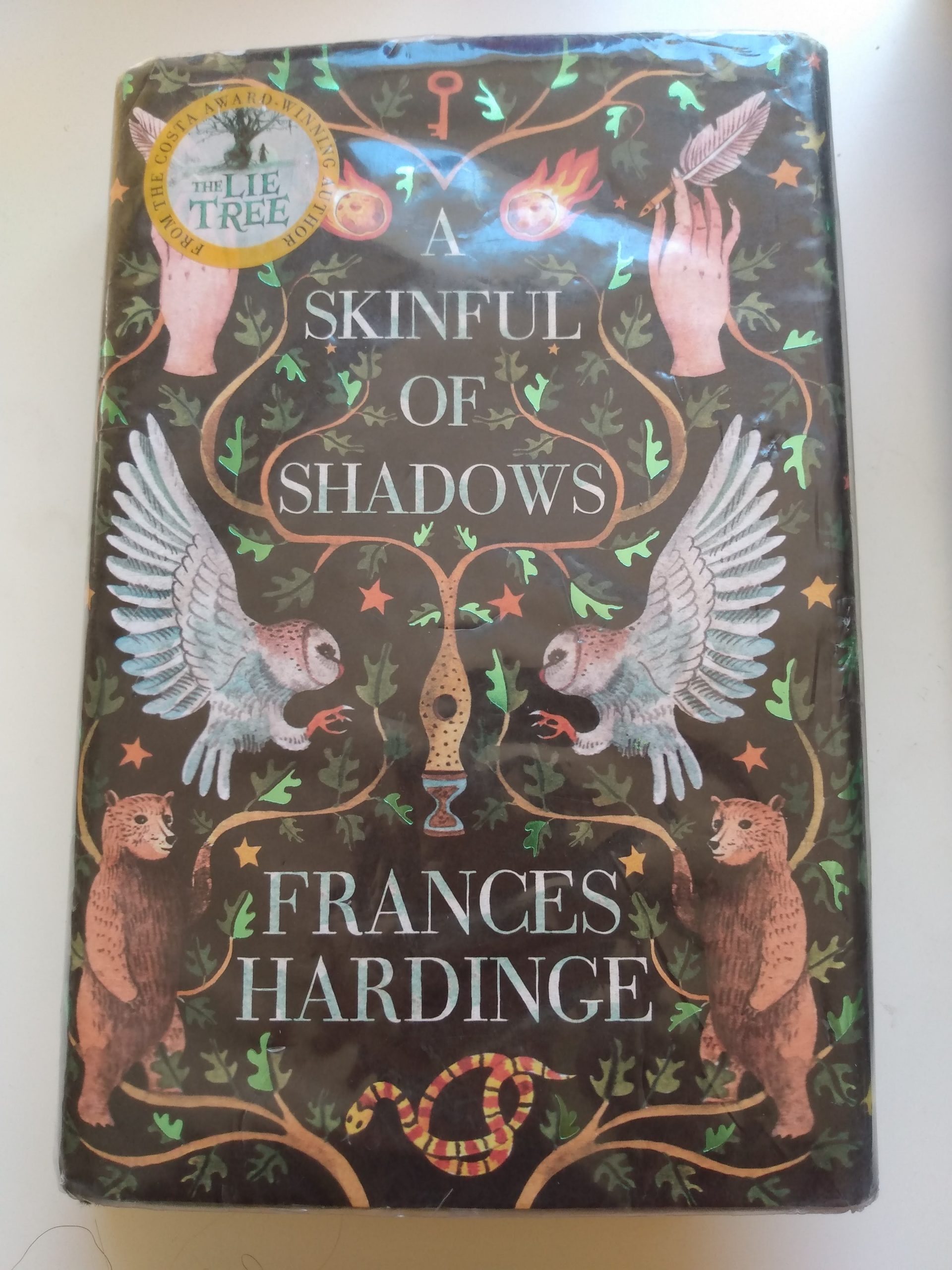A Skinful of Shadows, by Frances Hardinge
Frances Hardinge is one of my favourite authors. I adore and admire her use of language, and I always enjoy her eccentric concepts and twisty plotlines. This one is about a girl called Makepeace, who becomes possessed by ghosts and then ends up embroiled in a dangerous political game. I was initially a little reluctant to read this book (I was a tad put off by the macabre blurb) but it wasn't long before the magnetism of a book with 'Frances Hardinge' on the spine overcame me. I read it, and was reminded of why Frances Hardinge is one of my favourite authors. It was brilliant.

First of all, this book is not a horror story, as the description on the inside cover seemed to suggest. There are elements that are macabre and gothic, because Hardinge never shies away from the morbid, but I actually relish this sort of thing from time to time... At its heart, though, this is a historical fantasy. It contains espionage, betrayal, politics, family, and, of course, ghosts. The characters are lovable. The plot is exciting. It's even set in historical Britain, concluding the list of features that float my boat.
But the best thing about this Frances Hardinge book, and any Frances Hardinge book, is the way she innovatively moulds words to create such unusual imagery. Whenever I read her books, I find myself thinking ooh that's lovely; I would be proud to have thought of one of these descriptions, but Hardinge seems to be able to weave hundreds of them effortlessly into every chapter. I think that what is so exciting about her imagery is the way she describes abstract nouns using concrete nouns, intangible ideas and feelings as objects you can touch and see.
Here are my three favourite images from A Skinful of Shadows:
'Her memories [...] were too painful to handle, like shards of glass.'
The idea of painful memories is almost a cliché, but Hardinge puts a new spin on it. That simile - 'like shards of glass' - changes both 'handle' and 'painful.' 'Handling' the memories now means more than coping with them; it almost evokes the idea of holding them in your hands. Furthermore, the pain is no longer emotional, but sharp, cutting, physical pain. So inventive.
'She had seen people read, their gaze floating down the lines like a leaf on a stream-current.'
I just think this so beautifully evokes the motion of reading. Hardinge is right - when you read fluently, your eyes do skim smoothly down the page. I had never thought about this before. And again, 'the gaze' - an invisible thing - is being compared to something physical.
'Second after second fell away into the unforgiving past.'
What a way to describe a long silence. I love the idea of seconds falling, and this combines with the personification of the past as 'unforgiving' to illustrate that time is precious, and lost time is irretrievable.
There are nuggets like this on every page. A feast for a word wolf!
